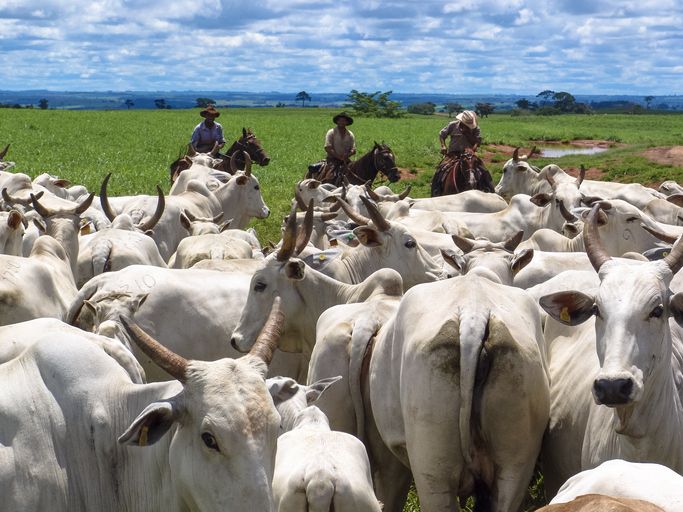- The Brazilian government has announced a plan to cut carbon emissions from its farming sector by 1.1 billion tons over the next nine years, Argus Media reports.
- Named ABC+, the plan includes reforestation and afforestation schemes, adoption of regenerative farming methods, and accelerated slaughter to reduce lifetime enteric methane emissions from cattle.
- Brazil’s agriculture ministry said the plans will cover an estimated 73 million hectares.
Why it matters:
Brazil is home to what is by far the world’s largest commercial cattle herd, with 214 million heads as of 2018. Agriculture, including livestock production, accounted for over a quarter of Brazil’s total greenhouse gas emissions in 2019, according to thinktank Observatorio do Clima.
The Brazilian agriculture ministry will subsidize interest rates for operations which adopt emissions-reducing practices under ABC+. For livestock farms, such projects include semi-confinement of grass-fed cattle prior to slaughter, and adding methane-reducing supplements to feed.
DSM’s methane-busting cattle feed approved in Brazil, the world’s biggest beef exporter – read more here
For crop growers, projects covered by the scheme will include no-till farming and direct planting that reduces soil erosion, fertilizer use, and fuel consumption, while enhancing soil carbon sequestration.
ABC+ is the follow-up to a similar scheme run by the Brazilian government between 2010 and 2020. The country’s agriculture ministry claimed that the earlier initiative saw ag-related carbon emissions cut by 170 million tons across 52 million hectares, exceeding its original target by 46%.





